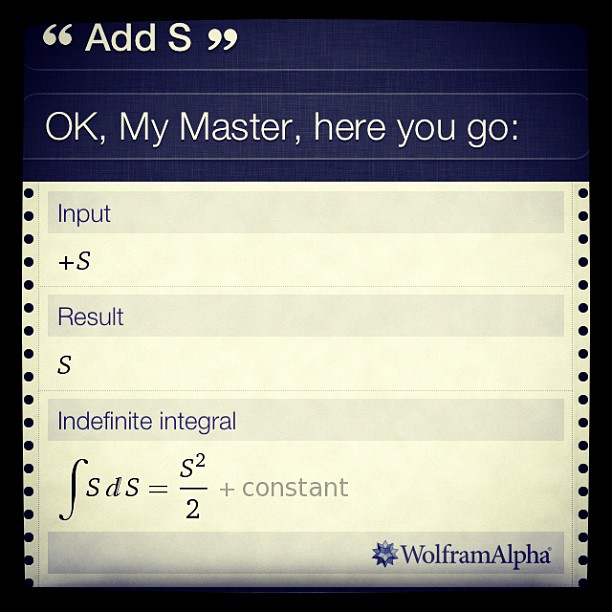In october 2011 Apple launched a personal assistant called Siri with one of their iPhone upgrades. While the rest of the new soft- and hardware were hardly worth mentioning, Siri got quite a bit of momentum.

Especially in the first time after its release, but also up to this day I could make several observations that, when put together, have very interesting implications on how we think of, feel about and respond to artificial intelligence. There is no denying: Even before Siri, artificial intelligence had started to creep into our lives at an increasing speed. We are entering the era of post-fictional droidism: we can surround us with elaborate appliances that do the vacuming for us, get us the info we need to get something done or manage to save electricity by observing our routines and learning how we live.
Enter Siri
Siri though is special in many respects. Being voice controlled there is almost no tangible interface. With only voice to interact there are no visual cues, no guides that signalize affordances, no “click me” buttons. We have to find out what Siri understands by ourselves. And: we have this urge to see through Siri. It is interesting to see that almost everybody that is experimenting with it for the first time is trying to come up with some sort of turing test to make Siri disclose her artificial identity. From journalists for nationwide newspapers to even my 12 year old daughter – it seems that there is this ubiquitous urge to find out whether Siri has a soul, a mother or a conscience. Siri’s identity and humanoid behavior has evoked several questions I heard over and over again: Why is Siri female? Why is she so docile, polite and why will she answer certain philosophical questions? Indeed: why has Siri got a real name used for humans and not some 3CPO like branding as do her sisters(!) EveR-1 and DER01?
An emerging core skill: Sensing Cyborgs
The identity of Cyborgs, Droids and Replicants has always been one of the key issues in Sci-Fi. Right now these topics seem to spill over to the non fictional world on a large consumer scale. Turing tests are more than 60 years old, so they are nothing new really, but they are known only to a few engineers and devoted sci-fi nerds. Now it seems that there is a shift happening: We are entering an age where the broad masses will start developing a very distinct skill: how to distinguish a person from a machine. It seem like there is a law behind it: the more natural the interface, the stronger the urge to dismantle its artificiality.
While the generation of my daughter is called the digital natives, the generation of my grandchildren will be belong to a generation that we will have to find a term for yet, an android aquainted youth, so to speak.
Context is King
Unsurprisingly an avalanche of references to science fiction movies come to mind. The voice of HAL in Stanley Kubrick’s Space Odyssey or the turing test in Ridley Scott’s “Blade runner” for instance. One of my favorite reference though is to Terminator movies and this for one simple reason: The importance of Context. Whenever the Terminators are teleported from the future they start to scan the environment for useful info. Realizing the context of the situation they are in, is essential to them. Learn and adapt, filter the useful and discard the noise.
Siri is already pretty good at making sense of what we ask and tell her. The next big steps will be putting things in the right context and learn to build a conversation embedded in a situation mimicking human interaction instead of answering single isolated questions.
We carry around a lot of contextual information about us in Siri’s physical body. The moment will come when Siri will understand how to use and interpret that. Wether in favor of or against us will yet have to be seen…
interesting thoughts!
especially that it will become a common skill to sense the difference between human voice and artificial voices.
it’s interesting to see that the mobile phone is becoming the personal assistant which appear in many sci-fi books. and now even with a voice…
why siri has a human name? a genius marketing decision! makes siri and the iphone look more and more like a human companion.